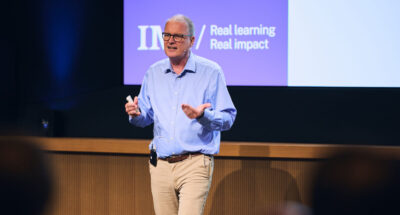Sure. Again, of course, these are important qualities. However, they are so vague and so fundamentally human that they are timeless and, therefore, completely useless. You might as well say: ‘In the future, we’ll need smart people.’ That’s also true, but it doesn’t help you one bit. Despite all the fancy ads from universities, we don’t have learning systems that specifically teach such general human skills.
The need for subject knowledge
Let’s take the example of ‘critical thinking.’ Let’s be very clear: There is no separate muscle for critical thinking in the brain. How can you arm yourself with critical skills against misinformation, such as the claim that trade tariffs will help the economy? Is it even possible?
Yes, it is possible – through expertise and knowledge acquisition. Only those with thorough knowledge of fundamental economic principles and the history of economic trade can debunk nonsense about trade tariffs.
The lesson is that we don’t necessarily need to teach our pupils and students how to critically engage with AI. You don’t need to tell them ‘be careful, this information might not be trustworthy.’ They will see that for themselves if they have fundamental subject knowledge and expertise.
The future of education will therefore look surprisingly like its past. Deep knowledge and fundamental cognitive skills to process and analyse knowledge will still provide the foundation for future career success.
The need for vision
Are there no specific AI skills then? Yes, perhaps managing an army of AI agents will require specific coordination and management skills. But anyone who is closely watching the evolution of recent apps like Claude Code, Manus and OpenAI Deep Research realises that only those who already have much expertise in a domain will significantly benefit from these. Also, those who want to specialise in AI development and machine learning undeniably need strong quantitative skills, which means mathematics in human language.


 Audio available
Audio available



